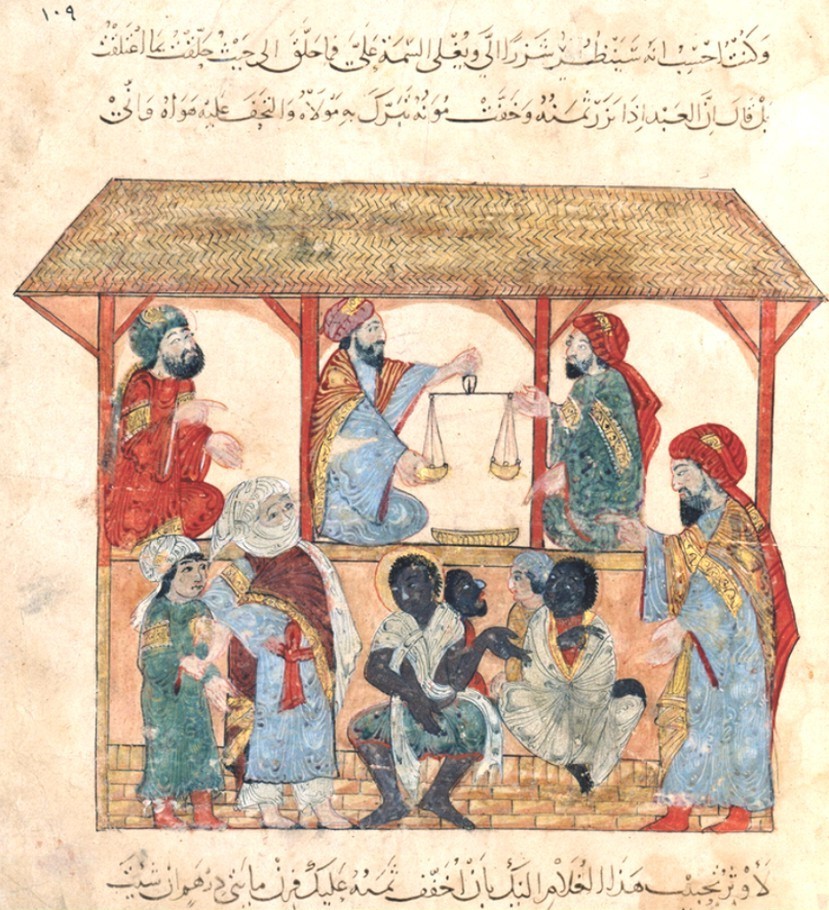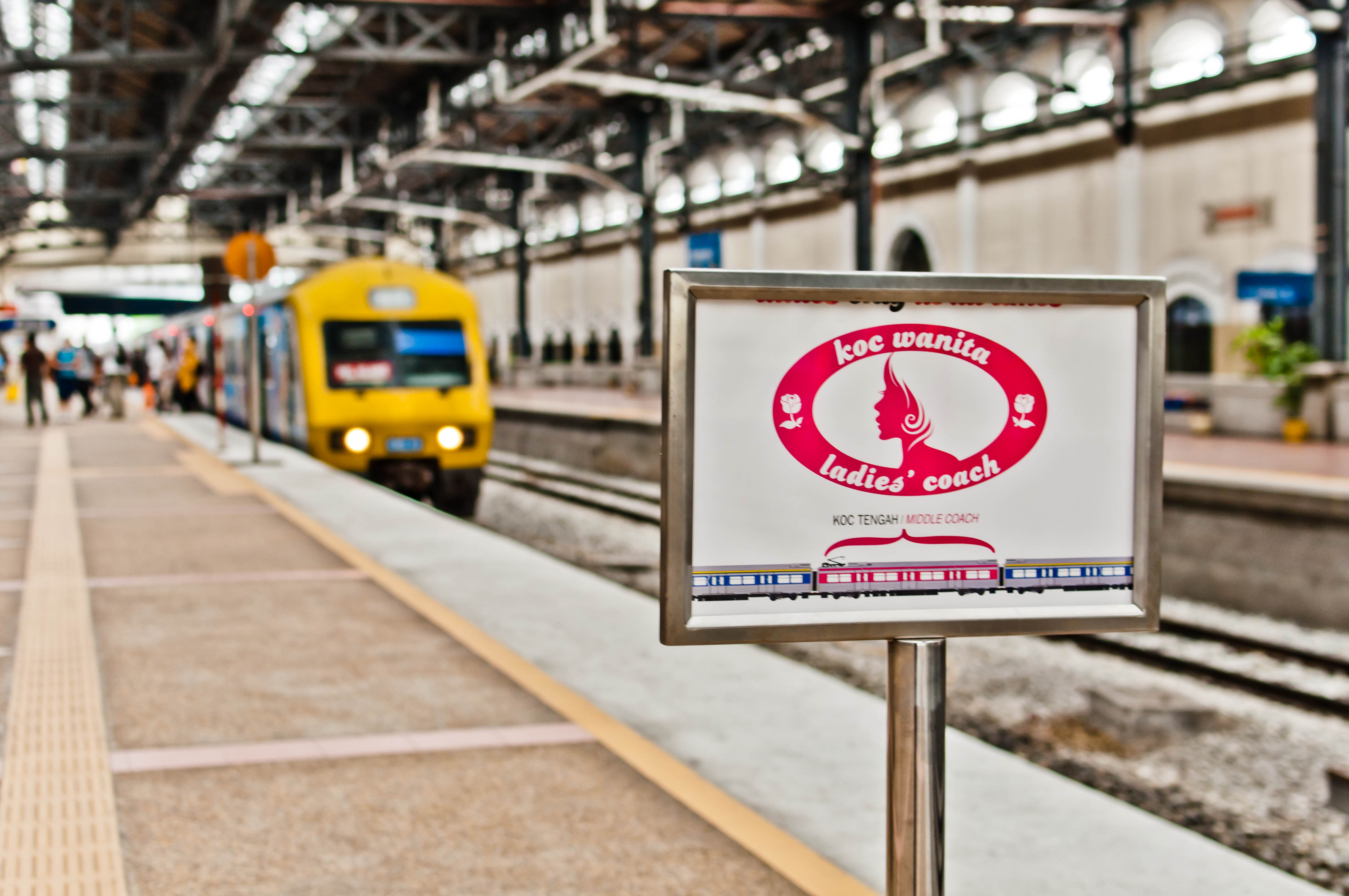|
Slavery In Malaysia
Chattel slavery existed in the area which was later to become Malaysia until it was abolished by the British in what was then the British Malaya and British Borneo ( Brunei, Sabah, Sarawak and Labuan) in 1915. From the 14th-century onward the area consisted of Islamic sultanate states, which enslaved non-Muslims. In the 19th-century, the territory successively came under the control of the British Empire, which started a process to gradually abolish slavery and slave trade from the 1870s until the final abolition in 1915. Background Slavery in the territories of Malaysia are not well known until the arrival of Islam in the 14th-century. After the transformation of the area to Islamic sultanates and the conversion of the ruling elite to Islam in the 14th-century, slavery and slave trade came to follow Islamic law and take on the characteristics of slavery in the Muslim world, and more information are available about slavery in the Malay sultanates. Slave trade After co ... [...More Info...] [...Related Items...] OR: [Wikipedia] [Google] [Baidu] |
British Malaya Circa 1922
British may refer to: Peoples, culture, and language * British people, nationals or natives of the United Kingdom, British Overseas Territories, and Crown Dependencies. ** Britishness, the British identity and common culture * British English, the English language as spoken and written in the United Kingdom or, more broadly, throughout the British Isles * Celtic Britons, an ancient ethno-linguistic group * Brittonic languages, a branch of the Insular Celtic language family (formerly called British) ** Common Brittonic, an ancient language Other uses *''Brit(ish)'', a 2018 memoir by Afua Hirsch *People or things associated with: ** Great Britain, an island ** United Kingdom, a sovereign state ** Kingdom of Great Britain (1707–1800) ** United Kingdom of Great Britain and Ireland (1801–1922) See also * Terminology of the British Isles * Alternative names for the British * English (other) * Britannic (other) * British Isles * Brit (other) * Briton (d ... [...More Info...] [...Related Items...] OR: [Wikipedia] [Google] [Baidu] |
Slave Trade Act 1807
The Slave Trade Act 1807, officially An Act for the Abolition of the Slave Trade, was an Act of the Parliament of the United Kingdom prohibiting the slave trade in the British Empire. Although it did not abolish the practice of slavery, it did encourage British action to press other nation states to abolish their own slave trades. Many of the supporters thought the Act would lead to the end of slavery. Slavery on English soil was unsupported in English law and that position was confirmed in ''Somerset's case'' in 1772, but it remained legal in most of the British Empire until the Slavery Abolition Act in 1833. Background As British historian Martin Meredith writes, "In the decade between 1791 and 1800, British ships made about 1,340 voyages across the Atlantic, landing nearly 400,000 slaves. Between 1801 and 1807, they took a further 266,000. The slave trade remained one of Britain's most profitable businesses." The Committee for the Abolition of the Slave Trade was for ... [...More Info...] [...Related Items...] OR: [Wikipedia] [Google] [Baidu] |
Human Rights Abuses In Malaysia
Humans (''Homo sapiens'') are the most abundant and widespread species of primate, characterized by bipedalism and exceptional cognitive skills due to a large and complex brain. This has enabled the development of advanced tools, culture, and language. Humans are highly social and tend to live in complex social structures composed of many cooperating and competing groups, from families and kinship networks to political states. Social interactions between humans have established a wide variety of values, social norms, and rituals, which bolster human society. Its intelligence and its desire to understand and influence the environment and to explain and manipulate phenomena have motivated humanity's development of science, philosophy, mythology, religion, and other fields of study. Although some scientists equate the term ''humans'' with all members of the genus ''Homo'', in common usage, it generally refers to ''Homo sapiens'', the only extant member. Anatomically mode ... [...More Info...] [...Related Items...] OR: [Wikipedia] [Google] [Baidu] |
Islam And Slavery
{{disambig ...
Islam and slavery may refer to: * Islamic views on slavery in theology / jurisprudence * Islamic views on concubinage in theology / jurisprudence * History of slavery in the Muslim world * History of concubinage in the Muslim world * Slavery in 21st-century jihadism * Ma malakat aymanukum Islamic views on slavery represent a complex and multifaceted body of Islamic thought,Brockopp, Jonathan E., “Slaves and Slavery”, in: Encyclopaedia of the Qurʾān, General Editor: Jane Dammen McAuliffe, Georgetown University, Washington D ... [...More Info...] [...Related Items...] OR: [Wikipedia] [Google] [Baidu] |
Slavery In Asia
An overview of Asian slavery has existed in all regions of Asia throughout its history. Although slavery is now illegal in every Asian country, some forms of it still exist today. Afghanistan Slavery was present in the post-Classical history of Afghanistan, continued during the Middle Ages, and persisted into the early 20th century. After the Islamic conquest of Persia, regions of both Persia and Afghanistan that had not converted to Islam were considered infidel regions, and as a result, they were considered legitimate targets of slave raids that were launched from regions whose populations had converted to Islam: for example Daylam in northwestern Iran and the mountainous region of Ḡūr in central Afghanistan were both exposed to slave raids which were launched from Muslim regions. It was considered legitimate to enslave war captives; during the Afghan occupation of Persia (1722-1730), for example, thousands of people were enslaved, and the Baluch made regular incursions ... [...More Info...] [...Related Items...] OR: [Wikipedia] [Google] [Baidu] |
Slavery By Country
Slavery and enslavement are both the state and the condition of being a slave—someone forbidden to quit one's service for an enslaver, and who is treated by the enslaver as property. Slavery typically involves slaves being made to perform some form of work while also having their location or residence dictated by the enslaver. Many historical cases of enslavement occurred as a result of breaking the law, becoming indebted, or suffering a military defeat; other forms of slavery were instituted along demographic lines such as race. Slaves may be kept in bondage for life or for a fixed period of time, after which they would be granted freedom. Although slavery is usually involuntary and involves coercion, there are also cases where people voluntarily enter into slavery to pay a debt or earn money due to poverty. In the course of human history, slavery was a typical feature of civilization, and was legal in most societies, but it is now outlawed in most countries of the wo ... [...More Info...] [...Related Items...] OR: [Wikipedia] [Google] [Baidu] |
History Of Concubinage In The Muslim World
The history of concubinage in the Muslim world encompassed the practice of a men living with a woman without marriage, where the woman was a slave, though sometimes free. If the concubine gave birth to a child, she attained a higher status known as Umm walad. The sexual exploitation of slaves by their owners was a common practice in the Ancient Near East and Mediterranean societies, and had persisted among the three Abrahamic religions, with distinct legal differences, since antiquity. Islamic law has traditionalist and modern interpretations: the former allowed men to have sexual relations with their female slaves, while most modern Muslims do not consider slave concubinage to be acceptable in the modern world. Concubinage was widely practiced by the Umayyads, Abbasids, Mamluks, Ottomans, Timurids and Mughals. The practice declined with the abolition of slavery. Characteristics Classifications of concubinage often define practices in Islamic societies as a distinct va ... [...More Info...] [...Related Items...] OR: [Wikipedia] [Google] [Baidu] |
Slavery In The Sultanates Of Southeast Asia
The history of slavery in the Muslim world began with institutions inherited from pre-Islamic Arabia;Lewis 1994Ch.1 and the practice of keeping slaves subsequently developed in radically different ways, depending on social-political factors such as the Arab slave trade. Any non-Muslim could be enslaved. Throughout Islamic history, slaves served in various social and economic roles, from powerful emirs to harshly treated manual laborers. Early on in Muslim history slaves provided plantation labor similar to that in the early-modern Americas, but this practice was abandoned after harsh treatment led to destructive slave revolts, the most notable being the Zanj Rebellion of 869–883. Slaves were widely employed in irrigation, mining, and animal husbandry, but most commonly as soldiers, guards, domestic workers, concubines (sex slaves). Many rulers relied on military slaves (often in huge standing armies) and on slaves in administration – to such a degree that the slaves could ... [...More Info...] [...Related Items...] OR: [Wikipedia] [Google] [Baidu] |
Sex Trafficking In Malaysia
Sex trafficking in Malaysia is human trafficking for the purpose of sexual exploitation and slavery that occurs in Malaysia. Malaysia is a country of origin, destination and transit for sex trafficking. Sex trafficking victims in the country are from all ethnic groups in Malaysia and foreigners. Children, people in rural areas and or poverty, minorities, migrants, and refugees are vulnerable. Malaysian citizens, primarily women and girls, have been sex trafficked into other countries in Asia and different continents. Many are forced into prostitution and or marriage and unfree labour. Victims are threatened and experience physically and psychologically abuse. They contract sexually transmitted diseases from rapes. Some are coerced to be in online pornographic films. The perpetrators are often part of or collude with criminal syndicates. They increasing use the internet to deceive victims. The government of Malaysia has been criticized for its response to sex trafficking. Corr ... [...More Info...] [...Related Items...] OR: [Wikipedia] [Google] [Baidu] |
Human Trafficking In Malaysia
Malaysia is a destination and a source and transit country for women and children subjected to trafficking in persons, specifically conditions of forced prostitution and for men, women, and children who are in conditions of forced labour. The majority of trafficking victims are foreign workers from Indonesia, Nepal, India, Thailand, China, the Philippines, Burma, Cambodia, Bangladesh, Pakistan, and Vietnam, some of whom subsequently encounter forced labour, debt bondage and wage slavery at the hands of their employers, employment agents, or informal labour recruiters. Overview While many of Malaysia's trafficking offenders are individual businessmen, large organised crime syndicates are also behind some of the trafficking of foreigners in Malaysia. A significant number of young women are recruited for work in Malaysian restaurants and hotels, some of whom migrate through the use of “Guest Relations Officer” visas, but subsequently are coerced into Malaysia's commerc ... [...More Info...] [...Related Items...] OR: [Wikipedia] [Google] [Baidu] |
Human Rights In Malaysia
The protection of basic human rights is enshrined in Constitution of Malaysia. These include liberty of the person (Article 5) and prohibition of slavery and forced labour (Article 6). At the national level, legislative measures that exist to prevent human rights violations and abuses can be found in acts and laws on issues that either have a human rights component or relate to certain groups of society whose rights may be at risk of being violated. Human rights groups are generally critical of the Malaysian government and the Royal Malaysia Police. Preventive detention laws such as the Internal Security Act and the Emergency (Public Order and Prevention of Crime) Ordinance 1969 allow for detention without trial or charge and as such are a source of concern for human rights organizations like Suara Rakyat Malaysia. Legislation Several Malaysian laws are said to restrict basic human rights. Recent sweeping changes in these laws have been described by the government as human ri ... [...More Info...] [...Related Items...] OR: [Wikipedia] [Google] [Baidu] |






